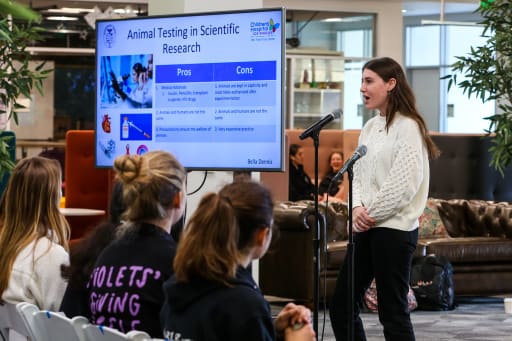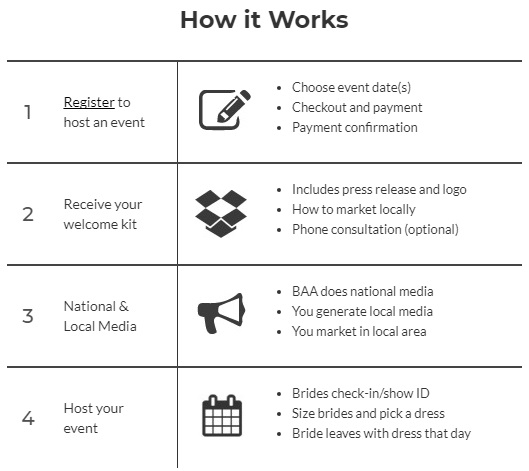How to Develop Listening Skills: Essential Tips for Success
To develop listening skills, practice active listening and focus on the speaker’s words and non-verbal cues. Improving listening skills is essential for effective communication and building strong relationships both personally and professionally.
By honing this skill, individuals can enhance their understanding, empathy, and overall communication abilities. In today’s fast-paced world, where distractions are abundant, cultivating effective listening skills can set you apart and make a significant difference in your interactions with others.
Whether in a work setting, social environment, or personal relationships, being a good listener can lead to improved collaboration, conflict resolution, and overall success. Let’s explore some practical strategies and techniques that can help you sharpen your listening skills and become a more attentive and engaged communicator.
Importance Of Listening Skills
Listening skills are essential for effective communication. They help us understand others better. Good listening improves both personal and professional relationships. It is a key to success in many areas of life.
Career Benefits
Strong listening skills can boost your career. They help you understand tasks clearly. You can follow instructions accurately. This makes you a more reliable employee. Good listeners are often better leaders. They understand their team members’ needs. This builds a positive work environment.
Listening also helps in problem-solving. You gather more information. This leads to better decisions. Employers value good listeners. They are often considered for promotions. Strong listening skills can be the key to career growth.
Personal Relationships
Good listening skills strengthen personal relationships. They show you care about others. People feel valued when you listen to them. This builds trust and respect. Listening helps avoid misunderstandings. You understand the other person’s perspective better.
Listening also improves empathy. You can relate to others’ feelings. This creates deeper connections. In families, good listening can resolve conflicts. It helps in building a peaceful home environment. Strong listening skills make you a better friend and family member.
Active Listening Techniques
Developing listening skills is crucial for effective communication. Active listening involves focusing fully on the speaker, understanding their message, and responding thoughtfully. Below are some techniques to help you practice active listening.
Eye Contact
Making eye contact shows the speaker you are engaged. It helps you stay focused and reduces distractions. Keep a natural gaze, without staring or looking away too often. This balance helps maintain a comfortable interaction.
Nodding And Feedback
Nodding your head shows you are listening and understand the speaker. It encourages the speaker to continue. You can also give verbal feedback like “I see” or “That makes sense.” This helps to acknowledge their message.
| Technique | Benefit |
|---|---|
| Eye Contact | Builds trust and keeps focus |
| Nodding | Shows understanding and interest |
| Verbal Feedback | Acknowledges the speaker’s message |
- Maintain eye contact
- Nod your head
- Give verbal feedback
Using these techniques can help improve your listening skills and make conversations more meaningful.
Overcoming Common Barriers
Developing effective listening skills can be challenging. One must overcome several common barriers. These barriers often hinder our ability to listen actively. Let’s explore how to overcome them.
Distractions
Distractions are a major barrier to listening. They can be both external and internal. External distractions include noise, visual stimuli, and interruptions. Internal distractions involve personal thoughts and emotions.
- Find a quiet place to listen.
- Turn off electronic devices.
- Focus on the speaker’s words.
- Maintain eye contact.
Practice mindfulness to manage internal distractions. Take deep breaths and clear your mind.
Prejudgments
Prejudgments can cloud your ability to listen. They create biases against the speaker. This leads to misunderstandings and conflicts.
| Prejudgment | Solution |
|---|---|
| Assuming you know everything | Be open to new information. |
| Judging based on appearance | Focus on the message. |
| Disliking the speaker | Separate personal feelings. |
Listen with an open mind. This helps you understand different perspectives. Avoid interrupting or finishing the speaker’s sentences.
By addressing these common barriers, you can develop better listening skills. This leads to improved communication and stronger relationships.
Practicing Mindfulness
Practicing mindfulness is key to developing strong listening skills. It helps you focus on the present moment and truly understand the speaker. By staying mindful, you can catch every detail and respond thoughtfully.
Being Present
Being present means giving your full attention to the speaker. This involves making eye contact, nodding, and showing interest. Your body language should reflect that you are engaged. Avoid distractions like checking your phone or looking around. Focus on the person speaking and listen to their words carefully.
Sometimes, it helps to repeat what the speaker said. This shows you are listening and helps you understand better. For example, say, “So you mean…?” This keeps the conversation clear and focused.
Avoiding Multitasking
Multitasking can hurt your listening skills. Avoid doing other tasks while someone is speaking to you. This means not typing on your computer or doing chores during a conversation. Give the speaker your undivided attention.
Here are a few tips to avoid multitasking:
- Turn off notifications on your phone.
- Close unnecessary tabs on your computer.
- Find a quiet place to talk.
By following these steps, you show respect and improve your listening skills.
Improving Through Feedback
Improving your listening skills requires feedback from others. This section covers how feedback can help you get better at listening.
Seeking Constructive Criticism
Constructive criticism helps you understand your listening strengths and weaknesses. Ask friends or colleagues for honest feedback. They can provide insights you might miss. Make sure you choose people who listen well. Their feedback will be valuable and accurate.
Consider asking specific questions. For example:
- Do I interrupt too much?
- Do I seem distracted?
- Do I ask follow-up questions?
These questions can guide the feedback you receive. Write down the feedback. Reflect on it and identify patterns or common points.
Self-assessment
Self-assessment is another way to improve your listening skills. You can start by recording yourself in conversations. Listen to the recordings later. Pay attention to your body language and facial expressions. Notice if you interrupt or dominate the conversation.
Use a checklist to evaluate your listening:
| Listening Skill | Rating (1-5) |
|---|---|
| Eye Contact | |
| Not Interrupting | |
| Asking Questions |
Rate yourself honestly on each skill. Review your ratings and set goals for improvement.
Improving your listening skills takes time. Seek feedback and assess yourself regularly. This will help you become a better listener.
Frequently Asked Questions
What Are The 5 Key Listening Skills?
The 5 key listening skills are active listening, empathy, open-ended questions, summarizing, and non-verbal communication. Active listening involves fully concentrating on the speaker. Empathy shows understanding of feelings. Open-ended questions encourage detailed responses. Summarizing ensures accurate understanding. Non-verbal communication includes body language and eye contact.
What Are The 7 Key Active Listening Skills?
The 7 key active listening skills include maintaining eye contact, showing empathy, being attentive, avoiding interruptions, reflecting on the speaker’s words, asking clarifying questions, and summarizing the conversation.
What Are The 5 Steps Of Listening Skills?
The 5 steps of listening skills are: 1. Pay attention to the speaker. 2. Show interest through body language. 3. Provide feedback when appropriate. 4. Avoid interrupting while listening. 5. Summarize or ask questions for clarification.
Conclusion
Developing listening skills enhances communication and understanding. Practice active listening, maintain eye contact, and avoid interruptions. Consistent effort leads to improvement. Implement these strategies daily for better relationships and professional growth. Listening well opens doors to new opportunities and insights.
Start today to become a more effective listener.




